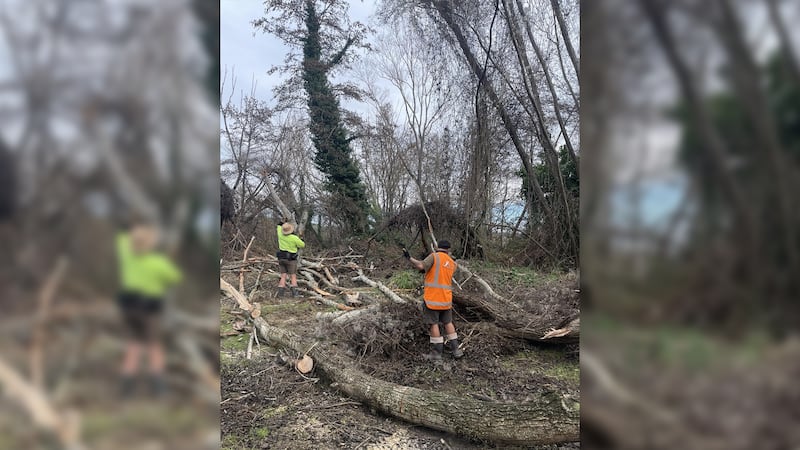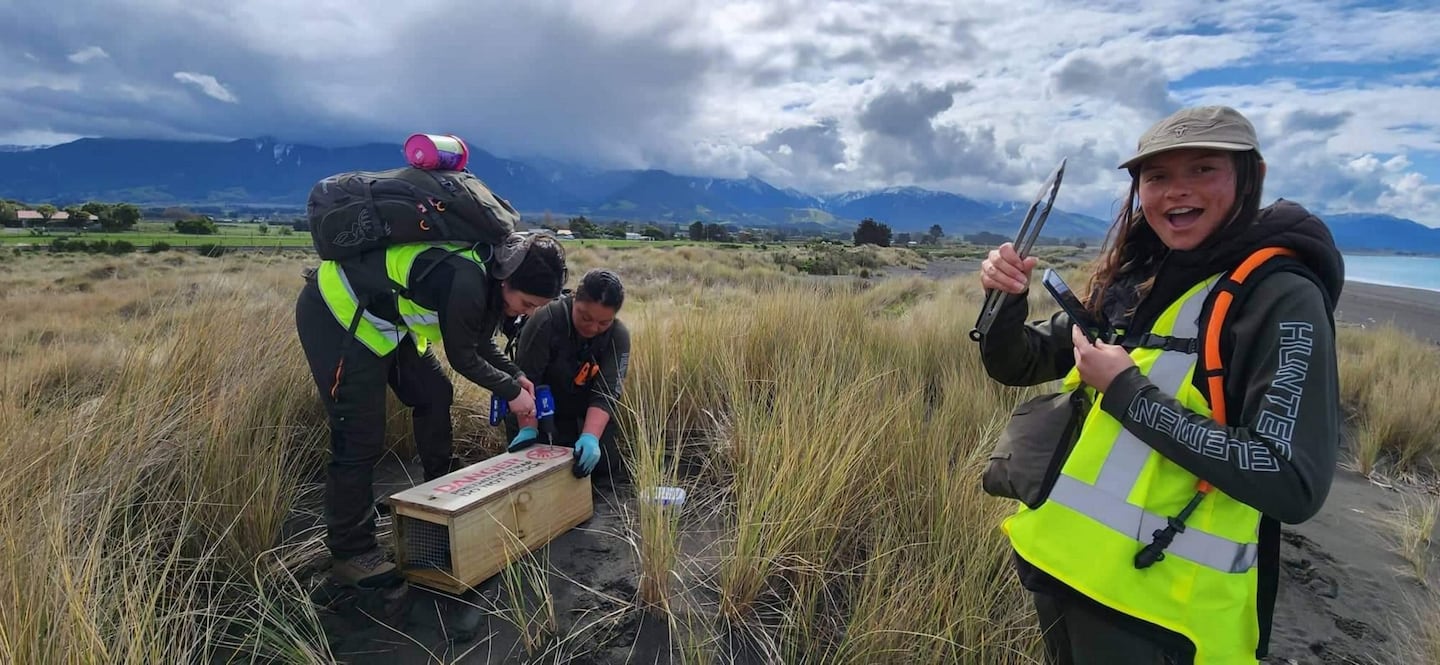An environmental initiative has led to permanent employment for Kaikōura youth.
Jobs for Nature funding allowed for the establishment of Te Tau Wairehu o Marokura predator control project by Te Rūnanga o Kaikōura Ltd three years ago to provide work for local youth and to lay predator traps along 120km of coastline to protect native birds.
The funding ran out in June, but the Rūnanga is now able to offer permanent employment to 11 young people aged between 18 and 22 years.
Before the funding ran out, the company turned to ecological restoration and planting work with the help of the Department of Conservation.
Managing director Rawiri Manawatu said many young people end up moving away in search of employment or end up on the unemployment benefit.
‘‘We wanted to keep our people here in the community, working in the community, for the community and in the environment.
‘‘We came up with a sustainability plan which DOC supported and we were able to do little projects here and there while we were still doing the trapping.’’
The company has now established Te Ora Haumanu, expanding into weeding, planting and waterway restoration contracting.

It has completed more than 30 contracts for DOC, Environment Canterbury, local farmers and other organisations in the Kaikōura, Hurunui and Marlborough districts.
The young people now have level three qualifications in pest management and spraying and have learned about GIS mapping, health and safety and first aid.
Business manager Chē Pauro has been impressed with how the team has applied the skills they have learnt.
One of the teams came across a car accident recently and immediately sprung into action.
‘‘They set up road controls with their orange cones, just as they would out in the field, got on the radio and managed the traffic until emergency services arrived,’’ Mr Pauro said.
‘‘The police came along and said ‘who are you guys?’.
‘‘We did a debrief to make sure they didn’t put themselves in danger and they talked about their kaupapa, and we were impressed with how they used their initiative and applied their skills to the situation.’’
Kaupapa Māori culture remains a big part of what they do, as well as the connection to the land, Mr Pauro said
The initiative also links in with Kaikōura High School, with students coming out to do planting programmes and to learn about ecological restoration.
With no funding available for the trapping work, the traps have been collected up and returned to the base on Mill Road, Mr Manawatu said.
‘‘We are now looking at a community trap project working in collaboration with community groups and individuals.
‘‘We can supply the traps and resource them and help them get started.’’
Mr Pauro said the team has collected plenty of data with its coastal surveys and bird numbers to assist with future trapping programmes.
LDR is local body journalism co-funded by RNZ and NZ On Air.



